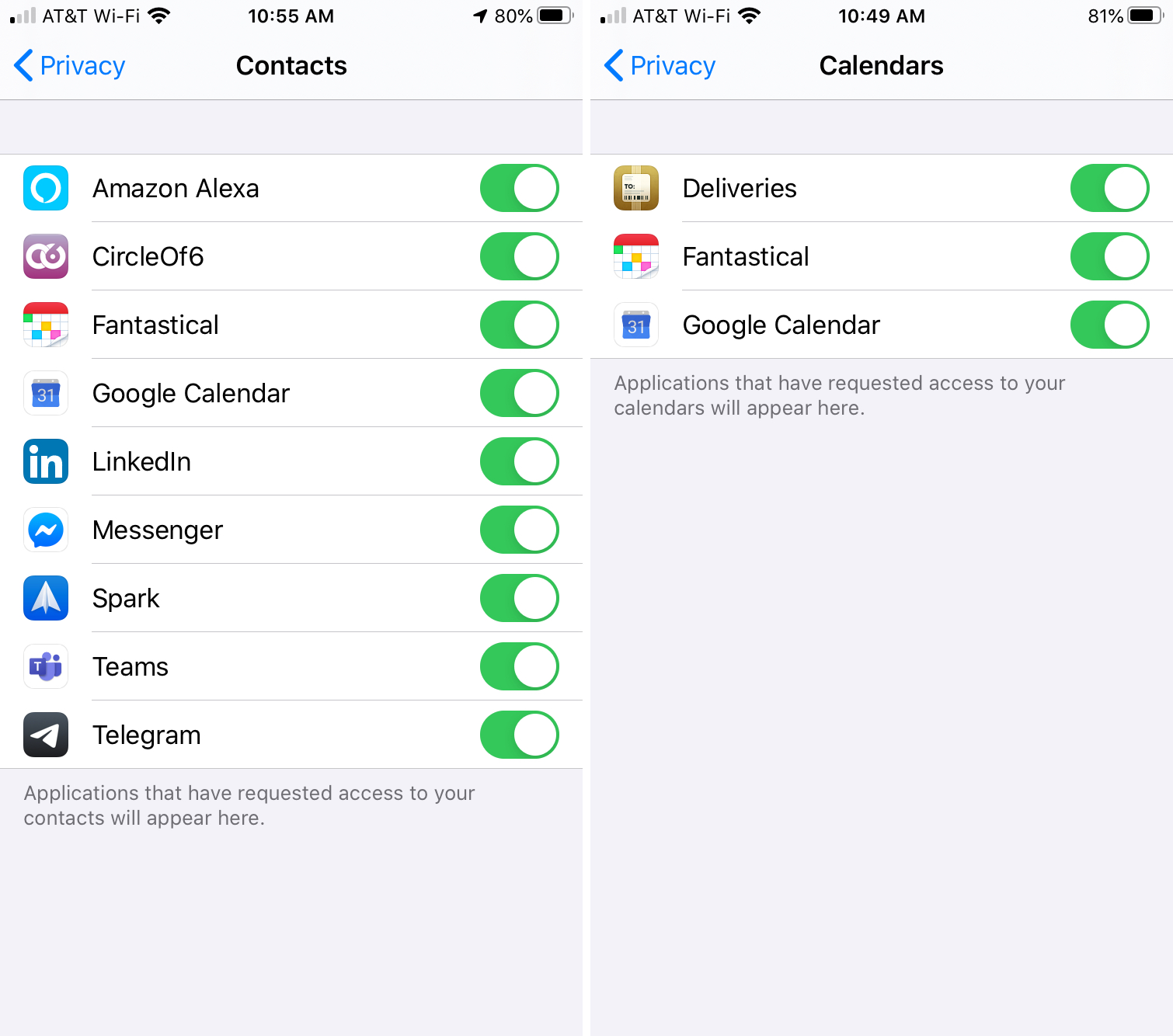
- Mac application asking for calendar permission how to#
- Mac application asking for calendar permission install#
If not, since the impact is low, I would suggest to lay the issue to rest for now (but make a note in the documentation). You may also choose to request permission to view the recipient’s calendar. In the To field enter the email address or addresses of those you wish to share your calendar with. A pop-up window will open with additional sharing features.

Maybe it is easy to alter the logic so that no attempt is made to access sensitive files or folders. To share a calendar with a user first open Outlook and navigate to. The MuseScore autosave files on Mojave are indeed kept in a folder sitting under ~/Library/Application Support.

There may be other categories of files that receive these new OS-level protections as well (Mail?, Reminders?, Time Machine backups?)īefore letting Atom read these files, Mojave is understandably asking whether you want Atom to be able to access this personal data. Photos files (~/Pictures/Photos\ Library.photoslibrary) Your home directory also contains your files that have new OS-level protections in Mojave:Ĭontacts files (~/Library/Application\ Support/AddressBook Because you're editing a file at the root of your home directory (~/.profile), the current directory is your home directory (~). An excerpt from the source mentioned: When you open the fuzzy-finder, Atom indexes the currently-open directory so that it can show you the available files. Apparently, certain directory-related actions can trigger the behaviour. It may have to do with a new protection scheme in Mojave. I found reference to similar problems with the Atom app on Mojave. I would not raise an issue had it happened only once, but now it has happened a second time. I do not think MuseScore is programmed to ask for these informations, but how can it then be that it does? It seems to me that something is very wrong here. But the fact that it happened is rather disturbing for me. No harm was done (hopefully) since I refused access. I find it difficult to assign a severity ranking to the issue. Suddenly, while I was navigating, the questions popped up. The second time I was in the process of navigating to the autosave folder, in an attempt to recreate the issue. The first time I was recovering from a crash and tried to save one of the open (autosaved) files. I cannot reproduce the issue at will, but both times I was trying to access a file in the autosave folder. I'm inclined try uninstalling VMware Fusion, then try it, but I'm wondering if there's something else I can do first, before taking that step.Twice now I have had MuseScore ask me for access to my contacts and calendar, seemingly without any reason.
Mac application asking for calendar permission how to#
I'm guessing that VMware may have stomped on some identifier that iTerm2 uses in the Privacy settings, but I'm not sure how to go about untangling this. I'm kind of stuck on this one and not sure how to go about debugging it. Started VMware Fusion up and it asked for permission to view files in ~/Documents. Went into ~/Downloads again and got the same pop-up asking for permission for VMware Fusion to access the Downloads folder. I stopped both apps, then went into the Privacy tab and deleted all "Files and Folders" permissions for both VMware Fusion and iTerm2, then restarted iTerm2. Since I wasn't actively using VMware Fusion - the VM was paused and hadn't been used since I last rebooted a few hours earlier - I said "Don't Allow" and went back to iTerm2, which promptly denied my viewing of my ~/Downloads directory. "VMware Fusion" would like to access file in your Downloads folder. Tonight, I wanted to check something in my Downloads directly in iTerm2, so I did a simple ls ~/Downloads and the privacy permissions popup appeared, saying A bit after that, I installed VMware Fusion and went on with my life.
Mac application asking for calendar permission install#
I installed iTerm2 shortly after doing a fresh install of Big Sur on my laptop.


 0 kommentar(er)
0 kommentar(er)
